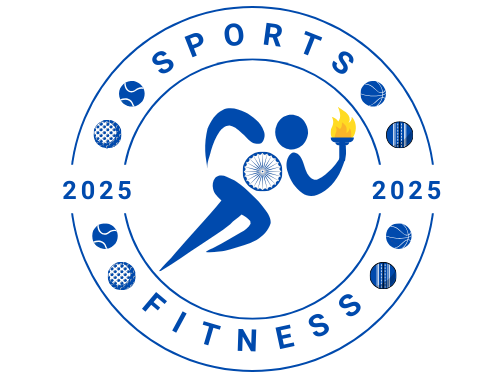Nutrition plays a critical role in every athlete’s performance and in anyone’s fitness journey. Whether you are a professional competitor or a fitness enthusiast, the way you fuel your body directly affects how well you train, recover, and improve. Exercise alone cannot produce the best results if your body lacks the nutrients it needs to function at its peak. That is why proper nutrition stands as a powerful foundation for sports and fitness success.

Nutrition Provides the Energy to Perform
Your body needs energy to move, lift, run, and push through every training session. Carbohydrates serve as the main source of quick energy. When you consume carbs, your body breaks them down into glucose, which fuels your muscles and brain. During high-intensity exercises, your muscles rely heavily on this energy source.
Proteins and fats also contribute to energy supply, especially during longer, lower-intensity activities. Endurance athletes, for example, use fat as a secondary source of energy when glycogen stores run low. Without adequate nutrition, your body will lack the fuel to sustain performance, leading to fatigue, slower reaction times, and poor results.
Nutrition Supports Muscle Growth and Recovery
Training stresses the body. Every sprint, lift, or jump causes tiny tears in your muscle fibers. Recovery and adaptation happen after your workout, not during it. Proper nutrition gives your body the tools it needs to rebuild and strengthen those muscles.
Protein plays a key role here. When you eat enough protein, your body uses amino acids to repair damaged tissues and build new muscle. Carbohydrates help replenish glycogen stores, which gives your muscles the energy to train again. Healthy fats reduce inflammation and support hormone production, which aids recovery. Without proper nutrients, your muscles will struggle to heal, and your performance will decline over time.
Nutrition Prevents Fatigue and Injury
Athletes and active individuals often push their bodies to the limit. When your body lacks essential nutrients, fatigue sets in faster, increasing the risk of mistakes and injuries. Dehydration, for example, can lead to muscle cramps, dizziness, and reduced coordination. Low energy intake can weaken muscles, making them more prone to strains and tears.
A balanced diet that includes enough vitamins, minerals, and fluids strengthens your body against these risks. Calcium and vitamin D support bone health. Iron helps carry oxygen through the blood, keeping your muscles well-supplied during exercise. Potassium and magnesium regulate muscle function and prevent cramps. Proper hydration maintains body temperature and supports endurance. When you fuel your body correctly, you create a safety net that keeps injuries at bay.
Nutrition Maximizes Training Results
Every training plan aims to achieve specific goals: building strength, improving endurance, increasing speed, or enhancing flexibility. Nutrition amplifies those results. For example, if your goal is to build muscle, consuming enough calories and protein will accelerate growth. If you aim to lose fat while maintaining lean mass, a balanced, nutrient-dense diet will help you burn fat while keeping your muscles strong.
Timing also matters. Eating the right foods at the right time boosts performance and speeds up recovery. A pre workout meal rich in complex carbohydrates and moderate protein gives you sustained energy. A post-workout meal or snack with protein and carbs helps your body recover faster and prepare for the next session. These strategies allow athletes to train harder and see faster progress.
Nutrition Strengthens the Immune System
Training intensely can temporarily weaken your immune system, making you more vulnerable to illness. Proper nutrition acts as a shield. Foods rich in vitamins C, D, and E, as well as zinc and antioxidants, support immune function. Lean proteins and whole grains provide the building blocks your body needs to repair cells and fight off infections. Hydration also plays a role in keeping your immune denseness strong. When your immune system stays healthy, you can train consistently without frequent breaks due to illness.
Nutrition Supports Mental Focus and Motivation
Sports and fitness require not just physical strength but also mental clarity. Your brain needs a constant supply of glucose to stay alert and focused. Low blood sugar can lead to dizziness, mood swings, and loss of concentration, which affect your performance. Proper nutrition stabilizes your blood sugar levels and keeps your mind sharp during training or competition.
Omega-3 fatty acids, found in foods like salmon, walnuts, and flax seeds, support brain health. Complex carbohydrates provide steady energy without sudden crashes. Adequate hydration keeps you mentally alert and helps maintain good decision-making skills during games or workouts. A well-nourished brain keeps motivation high and improves overall performance.
Nutrition Helps Maintain a Healthy Body Composition
Fitness is not just about how much weight you lift or how fast you run. It is also about maintaining a healthy body composition—balancing muscle mass, fat levels, and hydration. Nutrition plays a direct role in achieving that balance. A diet rich in lean proteins, healthy fats, and complex carbs supports muscle growth while minimizing unnecessary fat gain.
Crash diets or excessive restrictions can lead to muscle loss, energy drops, and poor performance. Consistent, balanced nutrition creates sustainable results. When you fuel your body properly, you build lean muscle, boost metabolism, and maintain a strong, healthy physique.
Nutrition Builds Long-Term Habits and Resilience
Sports and fitness are lifelong pursuits. Short-term diets or extreme eating habits rarely lead to lasting success. Instead, sustainable nutrition practices build resilience. When you learn to nourish your body properly, you recover faster, perform better, and feel more motivated to stay active.
Good nutrition also reduces the risk of chronic diseases, supports hormonal balance, and improves overall well-being. A well-fed body allows you to train year after year without burnout. In the long run, proper nutrition helps you stay fit, strong, and energetic throughout life.
Nutrition Personalizes Athletic Performance
Every athlete is unique. Nutrition allows individuals to tailor their fueling strategies to match their specific sport, body type, and training demands. Endurance athletes may need more carbohydrates, while strength athletes may prioritize protein. Some people thrive on three meals a day, while others perform better with small, frequent meals.
By paying attention to nutrition, athletes can optimize their performance and recovery in a way that suits their personal needs. This customization gives them a competitive edge and prevents energy dips, overtraining, and plateaus.
Nutrition Completes the Training Equation
Training and nutrition are two sides of the same coin. One without the other limits progress. You can train for hours each day, but without proper nutrition, your body cannot recover, grow, or adapt. On the other hand, good nutrition without physical activity will not maximize your potential. When both work together, they create a powerful synergy that drives athletic success.
Conclusion
Nutrition is not just a supporting factor in sports and fitness; it is a fundamental pillar of performance, recovery, and health. It fuels your body, sharpens your mind, strengthens your immune system, and builds resilience. Every athlete, from beginners to professionals, benefits from understanding how to nourish their bodies effectively. When you give your body the right nutrients, you set yourself up for stronger training sessions, faster recovery, fewer injuries, and better long-term results.
Investing in proper nutrition is one of the smartest decisions any athlete or fitness enthusiast can make. It is not about following strict diets or quick fixes. It is about making balanced, sustainable choices that support your goals. When you combine smart training with smart nutrition, you unlock your full athletic potential.

